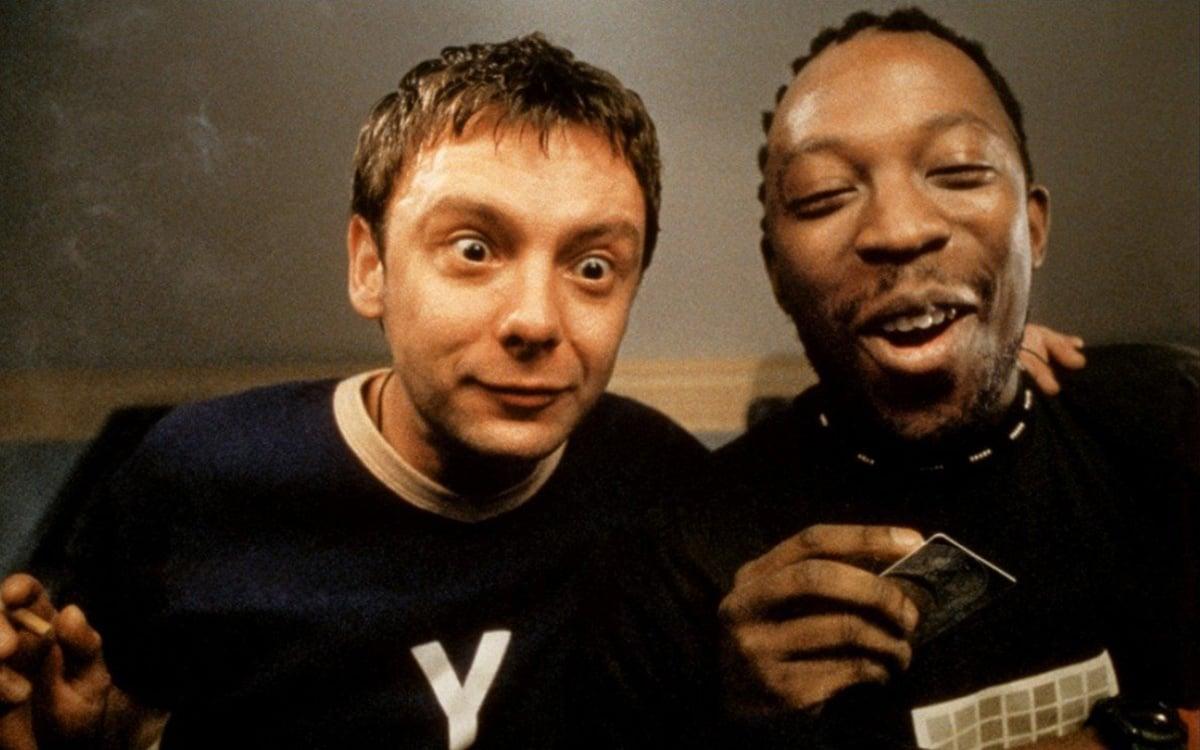Human Traffic by Justin Kerrigan (Review)

It’s inevitable for Human Traffic to be compared to Trainspotting. Both movies follow a group of friends who rebel against their humdrum, drab existence through witty banter, sex, raves, and large amounts of drugs. But unlike Trainspotting, which may have portrayed the drug lifestyle, but in no means a flattering way, Human Traffic practically revels in its drug-addled hedonism. And that means that when it’s all over, it ultimately feels as empty as an addict’s comedown.
I’m not sure what ultimately made Human Traffic not work. It wasn’t the “glorification” of drug use, though Human Traffic’s portrayal of the drug culture practically bordered on reverential. I think it had more to do with Human Traffic’s inability to decide what kind of movie it wanted to be. Is it an anti-drug picture, portraying the ruin that the drug lifestyle brings, that every drug-enhanced peak is always followed by a valley? Or is it a party film, showing five hip young kids engaging in a frenetic night of hedonism and unexpected romance?
What gave Trainspotting it’s great strength was the message it carried. I’m sure many have claimed that movies like Trainspotting glorify the use of drugs, an opinion I wholeheartedly disagree with. If anyone desires to shoot up heroin after watching the madness portrayed in that movie, they get what they deserve. Human Traffic lacks that sense of conviction and purpose. However, there are a handful of scenes where it does try to have a message, and as bad as this sounds, that hampers the film as well. That prevents it from being a vicarious thrill-ride à la another related film, Go.
Add to this the real lack of any cohesive plot or script (much of the dialog feels like an expanded “Wassup” commercial — it’s funny at first, but quickly gets grating), and a movie too much in love with fancy editing and crazy camerawork, and Human Traffic ends up just being a mess. There’s also a love story that feels like an afterthought, thrown in there to add a little humanity (and nudity). There are a handful of laugh-out-loud scenes (one of my faves is the “Spliff Politics” vignette), the movie does poke fun at the inevitable Trainspotting comparisons. But a movie can’t get by on just flashy characters, a tacked on love story, and over-the-top dialog.
If you’re doing a movie, it’s my opinion that it should either have a strong statement about the ultimate effects of drugs, or it needs to be a delirious, trippy ride for the viewer. Human Traffic tries to do both. Well, to be more accurate, it’s the latter with a few hits of the former here and there. Perhaps that was the filmmaker’s intent, a film that was a frantic assault on the senses, a visual rush that in the end, leaves an empty feeling behind. If that’s the case, they succeeded, but that doesn’t make for an engaging film.
